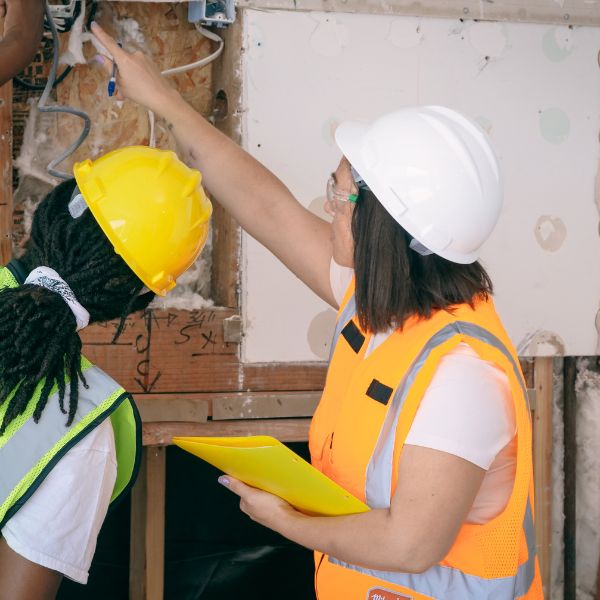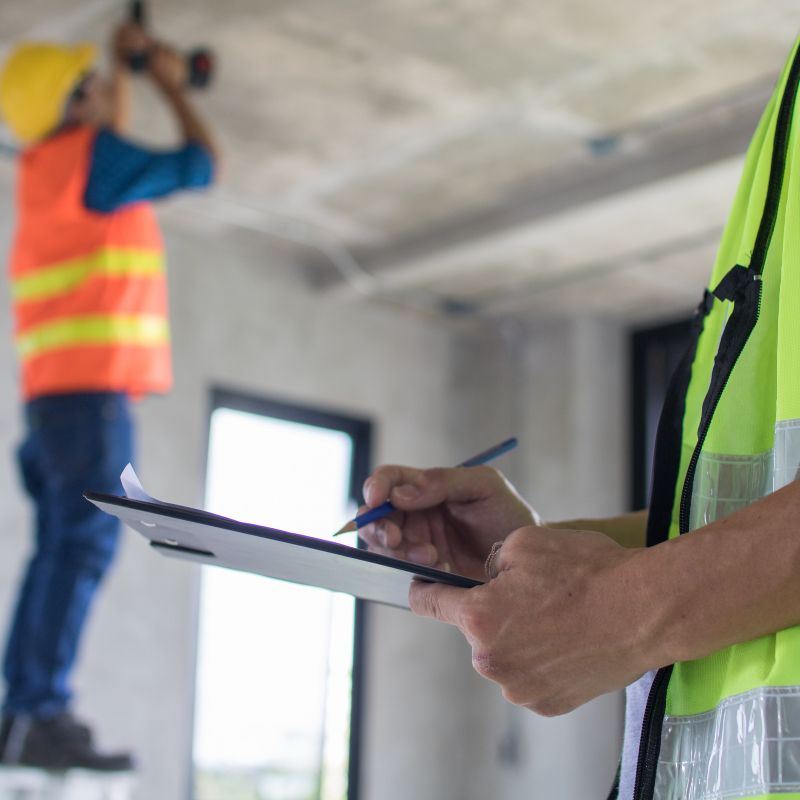Bank Identification Number (BIN)
The first four to six digits on the front of a payment card are the bank identity number (BIN). This group of digits identifies the bank or other financial organization that is responsible for issuing the card.
Triston Martin
Oct 24, 2022
When buying a home, it's important to have a home inspection done before the sale is final. This will help you know what repairs must be made before moving in. Sometimes problems are found after the home inspection that wasn't mentioned in the report. What do you do then? Here's what you need to know about requests for repair after a home inspection.

Requests for repair after a home inspection can be reasonable or unreasonable. The buyer needs to be aware of what is considered reasonable, so they are not taken advantage of during negotiations. A common misconception is that the seller is responsible for all repairs, no matter how small.
However, this is not the case. The seller is only obligated to make repairs necessary to ensure the home's and its occupants' safety. The buyer should also keep in mind that some repairs may fall outside of the scope of the home inspection report. For example, if the home inspector did not test the air conditioning unit, they would not be able to identify any potential issues.
As a result, the buyer should not expect the seller to repair or replace the AC unit based on the home inspection report alone. In short, your expectations regarding mandatory fixes after a home inspection are important to be reasonable and realistic.
Water damage is one of the most serious repair requests you may find after a home inspection. Water damage can occur for various reasons, such as cracks in the roof or walls, faulty plumbing, or flooding. Water damage can result in various problems, including mold growth, structural damage, and electrical problems. If you find water damage during your inspection, be sure to have it repaired immediately.
Mold growth is another serious repair request you may find after a home inspection. Mold can grow for various reasons, such as moisture buildup, leaks, or flooding. Mold can cause various health problems, including respiratory problems, allergies, and skin irritation. If you find mold growth during your inspection, be sure to have it removed immediately.
Structural damage is another repair request that you may find after a home inspection. Structural damage can occur for various reasons, such as water damage, foundation problems, or termite infestation. Structural damage can lead to various problems, including collapsed ceilings, walls, and floors. If you find structural damage during your inspection, be sure to have it repaired immediately.
Electrical problems are another repair request you may find after a home inspection. Electrical problems can occur for various reasons, such as water damage, faulty wiring, or outdated electrical panels. Electrical problems can lead to various problems, including fires and electrocution. If you find electrical problems during your inspection, be sure to have them repaired immediately.
HVAC problems are another repair request you may find after a home inspection. HVAC problems can occur for various reasons, such as improper installation, lack of maintenance, or faulty parts. HVAC problems can lead to various problems, including uncomfortable indoor temperatures and poor air quality. HVAC systems are expensive, so check them properly and request a replacement from the buyer if required.

The best way to ensure that your repair requests are successful is to be reasonable and realistic in your expectations. Buyers should remember that sellers are not obligated to make unnecessary repairs to ensure the home's safety and its occupants.
In addition, buyers should keep in mind that some repairs may fall outside of the scope of the home inspection report. Here are some tips for successfully making requests for repairs:
The first step to successfully making repairs after a home inspection is to prepare a list of items that need to be repaired. This list should be created before the inspection so that you can be sure to include all of the necessary items. The list should also be prioritized so that the most important repairs are addressed first.
Not all items noted on a home inspection report will require repairs. Some items may need to be cleaned or maintained to meet the home inspection standards. As such, it is important to ensure the repairs you request are necessary. Otherwise, you may end up wasting time and money on unnecessary repairs.
Once you have determined which repairs need to be made, you will need to get quotes from multiple contractors to find the best price for the work. It is important to get at least three quotes to ensure that you are getting a competitive price. Additionally, you should ask each contractor if they offer any discounts or promotions that could lower the cost of the repairs.
After receiving all of your quotes, you can negotiate with the seller about covering some or all of the costs of the repairs. In many cases, sellers will be willing to cover at least a portion of the costs to avoid having their home sit on the market for an extended period.
However, it is important to remember that you should only request necessary repairs and are willing to pay for any repairs the seller does not agree to cover.
When making your request, it is important to be polite but firm. Remember that you are entitled to have the repairs made, and the seller or agent should be willing to accommodate your request. If they are unwilling to make the repairs, you may need to consult an attorney or real estate agent to discuss your options.
After a home inspection, it's common for the buyer to request repairs from the seller. In some cases, these requests can be extensive and costly. If you're a buyer dealing with this situation, it's important to understand your rights. After reading this blog post, we hope you are confident enough to request a home repair.
Bank Identification Number (BIN)
The first four to six digits on the front of a payment card are the bank identity number (BIN). This group of digits identifies the bank or other financial organization that is responsible for issuing the card.
An Eccentric Guide to the Most Famous Leveraged Buyouts
Leveraged buyouts are frequently a better idea in principle than in practice. It's fine to load a firm with debt to acquire it, but the difficulty is that it still wants to function with that burden on its income statement in the following years. Numerous transactions prove that it's not always simple to strike this delicate balance. You will learn about the most well-known average buybacks in the industry by reading this piece. You may learn all the details you require about them.
How To Ask For Reasonable Repair Requests After Home Inspections
If you're buying or selling a home, you'll likely have it inspected by a professional. But what do you do if the inspector finds something wrong? Here's what you need to know about requests for repair after home inspection.
Origin and Definition of Open Banking
This article introduces the origin and some definitions of Open Banking.



